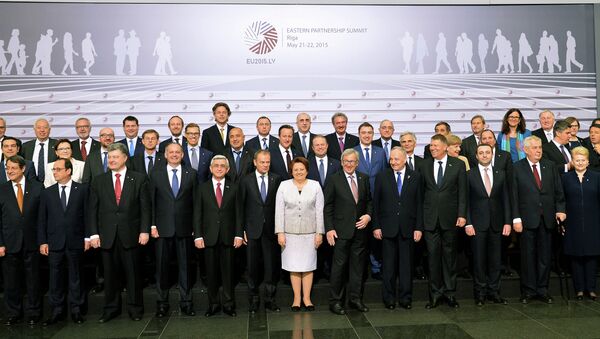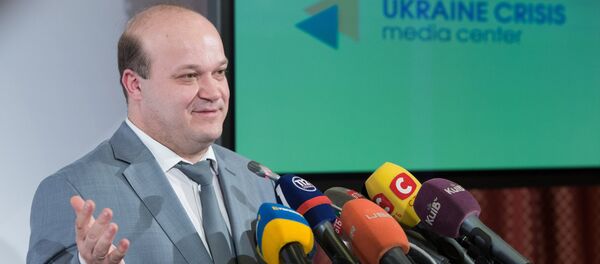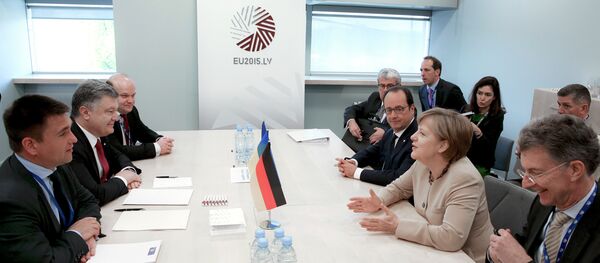While according to French journalist Eric Maurice the Eastern Partnership (EaP) summit in Riga was "a quiet success," the meeting indicated that the relationship between Brussels and six former Soviet Republics – Ukraine, Georgia, Moldova, Armenia, Azerbaijan, and Belarus – is based on a "potentially harmful ambiguity."
"Ukraine, Georgia, and Moldova did not get the promise of future membership talks with the EU; Ukraine and Georgia were not given visa-free travel from next year; critics of Russia did not obtain a condemnation of Moscow's involvement in eastern Ukraine; and the EU extracted no commitment on human rights from Armenia, Azerbaijan, and Belarus," Eric Maurice admitted.
And, according to EU Council president Donald Tusk, it was "the maximum we [EU] can achieve today."
The lack of clarity over the EU's general direction is gradually increasing tensions among the EaP frontrunners, namely Ukraine, Georgia, and Moldova.
Seeking EU membership, the post-Soviet states refer to article 49 of the EU treaty, stating that "any European state which respects the values [of the EU] may apply to become a member of the Union."
"But the EU never defined what is a European state or said if it considered the six EaP partners as such," Eric Maurice emphasized.
The initiative received high praise from other EU member states, who was interested in "stabilizing" the post-Soviet European periphery by establishing closer political and economic relations. However, most of the EU countries tried to evade discussions related to membership perspectives.
However, the issue of EU membership perspectives is still remaining in the balance.
Citing Pierre Vimont, former secretary general of the EU's diplomatic service, the journalist pointed out that Brussels may find itself in an embarrassing situation while asking the countries to implement the EU community acquisitions and at the same time giving them no membership guarantees.
"We ask them to implement the community acquis and at the same time we give them no guarantees [on membership]. We will not be able to go on eternally like this," Mr. Vimont underscored, as quoted by the journalist.





